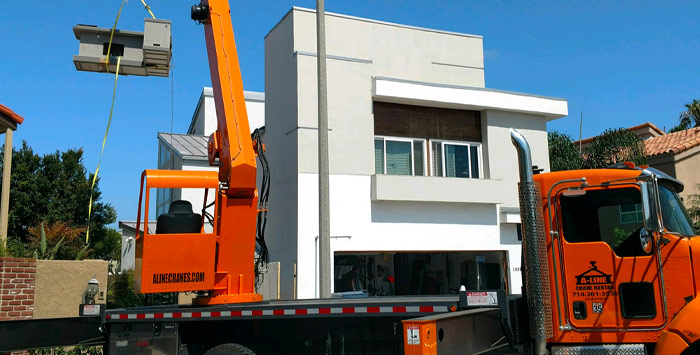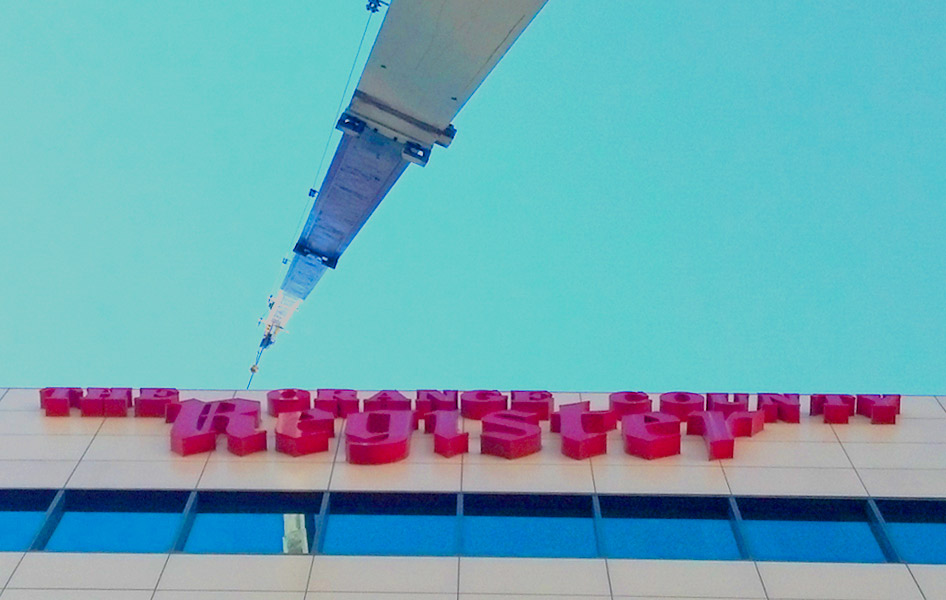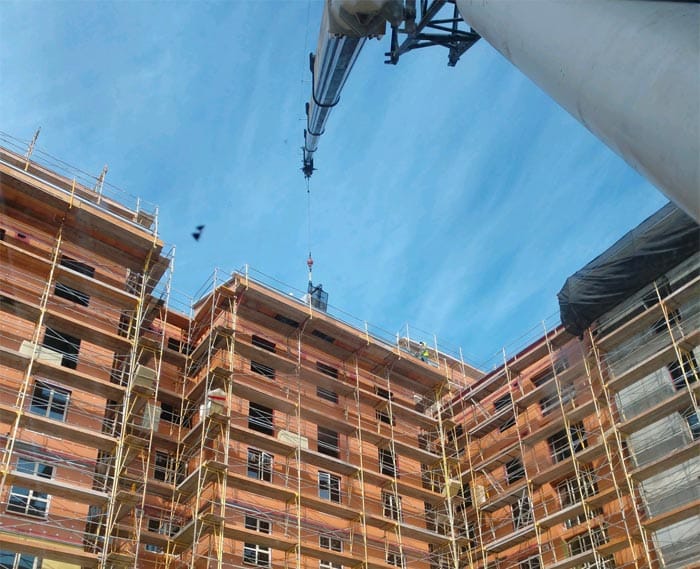The Role of Cranes in Streamlining Modular Construction

Table of Contents
Modular construction, a method where buildings are prefabricated in modules off-site and then assembled on-site, has gained significant traction for its efficiency, sustainability, and cost-effectiveness. A key player in the seamless execution of modular construction projects is the crane. Cranes are indispensable in lifting and positioning heavy, prefabricated modules with precision, fundamentally transforming how structures are brought to life.
Efficient Assembly and Installation
The essence of modular construction lies in its ability to significantly reduce construction timelines. Cranes facilitate this by efficiently moving large modular units from transport vehicles to their final position. This process not only speeds up construction but also minimizes the disruption often associated with traditional building methods.
Enhanced Precision and Safety
Accuracy is crucial in modular construction to ensure that prefabricated sections fit together perfectly. Cranes, equipped with modern technology, offer the precision required to place modules accurately, ensuring the structural integrity of the building. Moreover, by automating the lifting process, cranes reduce the need for manual labor, thereby enhancing on-site safety.
Overcoming Logistical Challenges
Transporting and installing large prefabricated modules can present significant logistical challenges, especially in urban areas or sites with limited access. Cranes overcome these obstacles by lifting modules over existing structures or tight spaces, demonstrating their versatility and capability to adapt to various site conditions.
Supporting Sustainable Construction Practices
Modular construction is lauded for its environmental benefits, including reduced waste and lower carbon emissions. Cranes contribute to this sustainability by enabling the precise and efficient assembly of prefabricated modules, further reducing the environmental impact of construction activities.
Transforming Modular Construction with A-Line Crane Services
The construction industry is increasingly embracing modular and prefabricated methods. At the heart of this transformative approach is the critical role played by cranes and boom trucks. Aline Cranes is at the forefront of this shift, offering precision lifting and positioning services that are essential for the rapid assembly of modular and prefabricated building components.
Our Expert Approach in Modular Construction
A-Line Cranes plays a pivotal role in the modular construction sector, where precision and strategic planning are paramount for the successful assembly of buildings, ranging from residential homes to commercial offices. Our approach to selecting the ideal crane for each project is rooted in a deep understanding of the complexities involved, ensuring that every detail is meticulously considered.
Strategic Crane Placement for Optimal Efficiency
The foundation of our process is the strategic placement of cranes. This isn’t about convenience; it’s about necessity and precision. The location for each crane is carefully chosen to support the dual goals of operational efficiency and safety. The site must not only facilitate optimal crane performance but also bear the combined weight of the crane and the modular units without compromise.
Ensuring Safety and Precision in Lifting Operations
Our crane operators are at the forefront of ensuring the safety and efficiency of modular construction lifts. They are trained to be highly attentive to environmental factors, potential obstacles, and safety hazards, including adverse weather conditions and the proximity to power lines. This vigilance is crucial for maintaining a secure lifting environment.
When it comes to crane selection, the primary consideration is the weight of the modular components. We meticulously match each crane’s lifting capacity to the project’s specific needs, guaranteeing that the equipment is perfectly suited to the task.
Phased Approach to Modular Construction
The modular construction process with A-Line is carefully staged, beginning with the crane’s arrival and its strategic positioning. Before lifting commences, we collaborate closely with site managers to ensure the foundation is fully prepared and any necessary adjustments are made. This preparation is key to a successful start, and for those seeking competitive crane rental rates, A-Line offers exceptional service.
The lifting process kicks off with the placement of the first module, a step that sets the tone for the entire project. Depending on the project’s requirements, we use either nylon straps or braided cables for this initial lift. The precise placement of this first module is critical, as it influences the alignment and positioning of all subsequent modules, much like the first piece of a puzzle.
For more complex assemblies, A-Line frequently utilizes multi-crane lifts. This technique not only boosts the precision of the lift but also reinforces the strict safety protocols essential to every project.
In every aspect of modular construction, A-Line Cranes is dedicated to delivering precision, safety, and efficiency, underscoring our commitment to excellence in the industry.
Partner with Aline Cranes for Your Modular Construction Needs
Embracing modular and prefabricated construction methods with Aline Cranes means ensuring your projects benefit from the latest in crane technology and expertise. Our commitment to precision, efficiency, and safety makes us the ideal partner for construction projects looking to leverage the advantages of modular construction.
Contact Aline Cranes today to discover how our crane and boom truck services can revolutionize the assembly of modular and prefabricated components for your next construction project, setting new standards in efficiency and cost-effectiveness.



